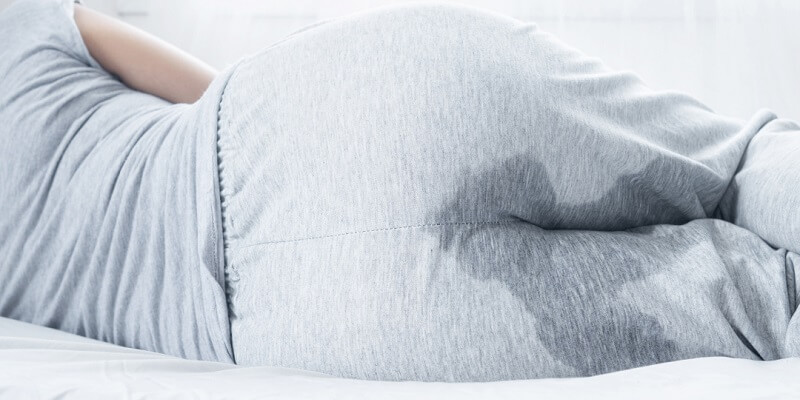What is Bed-Wetting?
Bed-wetting, also known as nocturnal enuresis or nighttime incontinence, refers to involuntary urination during sleep after the age when nighttime bladder control is expected. It is common and typically not a sign of failed toilet training but rather a normal part of development for many children.
When to Seek Medical Advice
Consult your child’s doctor if:
- Bed-wetting persists after age 7.
- The child starts bed-wetting again after several months of being dry at night.
- Symptoms include painful urination, unusual thirst, pink/red urine, hard stools, or snoring.
Causes of Bed-Wetting
The exact cause is unclear, but factors may include:
- Small Bladder: Underdeveloped bladder capacity may lead to nighttime accidents.
- Bladder Signal Recognition: Delayed nerve development may prevent children from waking when the bladder is full.
- Hormone Imbalance: Insufficient anti-diuretic hormone (ADH) production can result in excessive nighttime urine.
- Urinary Tract Infection (UTI): Can cause both bed-wetting and daytime accidents, along with frequent urination or pain.
- Sleep Apnea: Interrupted breathing during sleep (due to enlarged tonsils or adenoids) can cause bed-wetting.
- Diabetes: In some cases, bed-wetting may indicate undiagnosed diabetes. Symptoms may include frequent urination, increased thirst, fatigue, and weight loss despite a good appetite.
- Chronic Constipation: Long-term constipation may impair the muscles involved in urination.
- Structural Problems: Rarely, a neurological or urinary system defect may contribute to bed-wetting.
Risk Factors
- Gender: Bed-wetting is twice as common in boys as in girls.
- Family History: A child whose parent(s) experienced bed-wetting is more likely to have the condition.
- Stress and Anxiety: Major life changes, such as starting a new school or becoming a sibling, can trigger bed-wetting.
- ADHD: Children with ADHD are at higher risk for bed-wetting.
Complications of Bed-Wetting
While bed-wetting isn’t physically harmful, it can lead to:
- Guilt or embarrassment, potentially affecting self-esteem.
- Avoidance of social activities like sleepovers or camps.
- Skin irritation or rashes from prolonged exposure to wet clothing.
Diagnosis
To determine the cause and develop a treatment plan, your doctor may perform:
- Physical Exam: To check for physical or structural issues.
- Symptom Evaluation: Reviewing fluid intake, family history, and bowel/bladder habits.
- Urine Tests: To detect infections or diabetes.
- Imaging Tests: X-rays or scans of the bladder and kidneys to evaluate their structure.
- Other Urinary Assessments: If necessary, to identify potential issues.
Treatment Options
Lifestyle Adjustments
Limit evening fluids, especially caffeine-containing drinks.
Encourage regular bathroom trips before bed.
Bladder Training
Help your child practice holding urine longer during the day to increase bladder capacity.
Moisture Alarms
Bed-wetting alarms detect moisture and wake the child, helping them recognize the need to urinate.
Medications
In some cases, doctors may prescribe medications to reduce nighttime urine production or improve bladder function.
Supporting Your Child
Approach the issue with patience and understanding to prevent feelings of guilt or shame. Reinforce positive behavior with encouragement rather than punishment. Consider using protective bedding to minimize stress.
